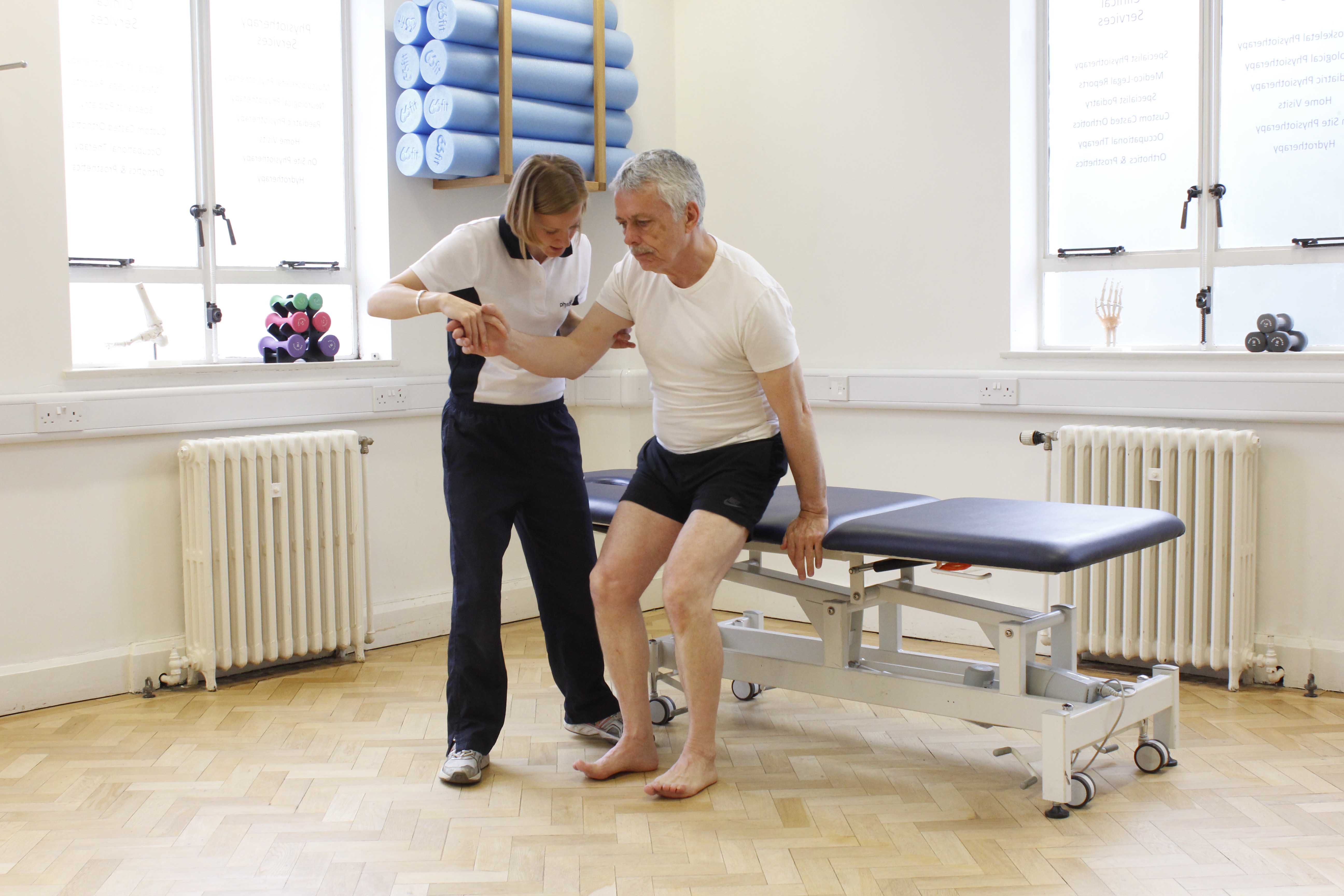What is Kennedy’s disease?
Kennedy's disease is type of motor neurone disease that affects males. It is one of a group of genetic disorders called spinal muscular atrophy (SMA) which causes damage to the motor neurons in the spinal cord leading to progressive muscle weakness, wasting and loss of function. Kennedy’s disease also affects the facial and tongue muscles making speaking, swallowing and breathing difficult.
Physiotherapy for Kennedy’s disease will help you manage your current symptoms and maintain you functional independence for as long as possible.
 Above: Neurological physiotherapist facilitating client transfers from stitting to standing
Above: Neurological physiotherapist facilitating client transfers from stitting to standingDiagnosis of Kennedy’s disease
Genetic testing will help to confirm a diagnosis of Kennedy’s disease. You may also be referred to a neurologist who will look at the activity of your muscles using an electromyography (EMG).
What causes Kennedy’s disease?
Kennedy’s disease is a genetic disease caused by a defective gene. Kennedy's disease is an x-linked recessive disease, which means the defective gene is carried by the mother on one of her X chromosomes.
What are the symptoms/effects of Kennedy’s disease?
Early symptoms of Kennedy’s disease include:
- Tremor
- Muscle cramps
- Muscle twitches (fasiculations)
Physiotherapy for Kennedy’s disease
Physiotherapy treatment can help maintain muscle strength and your independence with functional tasks for as long as possible. At Physio.co.uk our specialist neurological physiotherapists understand that being diagnosed with Kennedy’s disease is an emotional experience and can be difficult for the person affected as well as their families. Our neurological physiotherapists at Physio.co.uk recommend that physiotherapy is started shortly after onset and continued for a period of time to maximise your independence and keep muscles strong for longer.
Physiotherapy treatment at Physio.co.uk will be centred around:
- Maintaining muscle strength
- Maintaining joint range of movement
- Preventing soft tissue shortening
- Improving posture
- Improving balance and coordination
- Maximising respiratory function
- Maximising independence
- Reducing risk of falling
- Increasing energy levels
- Improving sense of well being
- Exercise program including stretching exercises to lengthen tight muscles and maintain joint flexibility and strengthening exercises to improve functional activities
- Activities to maintain the strength around your trunk and pelvis
- Balance training
- Improving posture in lying, sitting and standing to promote symmetry and comfort
- Hydrotherapy to maximise movement
- Practicing functional activities such as standing and walking
- Advice about orthotics and mobility aids
For more information or to book an appointment, please call 0330 088 7800.

 0330 088 7800
0330 088 7800

































